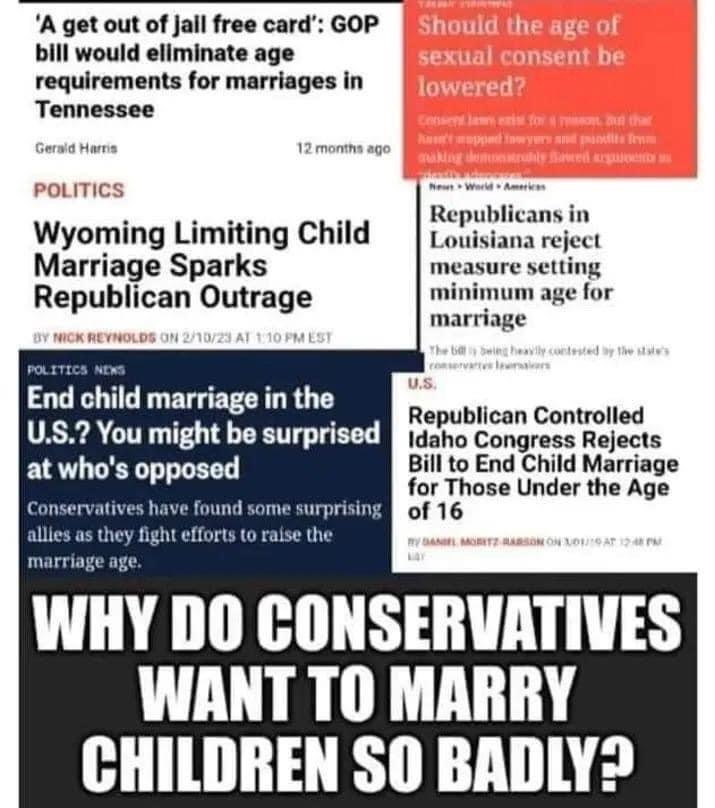

Uh, define “working”?


Uh, define “working”?
They are willfully and malevolently … not ignorant
Conservatives are not only more likely to have dark tetrad personality traits – Machiavellianism, narcissism, psychopathy and everyday sadism – but they’re also more likely to be, in a word, stupid. They’re definitely malevolently ignorant; the question isn’t if they’re stupid or evil, they’re both.
In the present research (N = 675), we focus on the relationship between the dark side of human personality and political orientation and extremism, respectively, in the course of a presidential election where the two candidates represent either left-wing or right-wing political policies. Narcissism, Machiavellianism, psychopathy, and everyday sadism were associated with right-wing political orientation, whereas narcissism and psychopathy were associated with political extremism. Moreover, the relationships between personality and right-wing political orientation and extremism, respectively, were relatively independent from each other.
We found eleven significant correlations between conservative [Moral Intuition Survey] judgments and the Dark Triad – [narcissism, Machiavellianism, psychopathy,] all at significance level of p<.00001 – and no significant correlations between liberal [Moral Intuition Survey] judgments and the Dark Triad. We believe that these results raise provocative moral questions about the personality bases of moral judgments. In particular, we propose that because the Short-D3 measures three “dark and antisocial” personality traits, our results raise some prima facie worries about the moral justification of some conservative moral judgments
I ran a follow-up study testing the Dark Triad against conservative and liberal judgments on 15 additional moral issues. The new issues examined include illegal immigration, abortion, the teaching of “intelligent design” in public schools, the use of waterboarding and other “enhanced interrogation techniques” in the war on terrorism, laws defining marriage as the union of one man and one woman, and environmentalism. 1154 participants […] Twenty-two significant correlations were observed between “conservative” judgments and the Dark Triad (all of which were significant past a Bonferonni-corrected significance threshold of p = .0008), compared to seven significant correlations between Dark Triad and “liberal” judgments (only one of which was significant past p = .0008).
[T]here exists a solid empirical paper trail demonstrating that lower cognitive abilities (e.g., abstract-reasoning skills and verbal, nonverbal, and general intelligence) predict greater prejudice. We discuss how the effects of lower cognitive ability on prejudice are explained (i.e., mediated) by greater endorsement of right-wing socially conservative attitude. […]
Right-wing ideologies offer well-structured and ordered views about society that preserve traditional societal conventions and norms (e.g., Jost, Glaser, Kruglanski, & Sulloway, 2003). Such ideological belief systems are particularly attractive to individuals who are strongly motivated to avoid uncertainty and ambiguity in preference for simplicity and predictability (Jost et al., 2003; Roets & Van Hiel, 2011). Theoretically, individuals with lower mental abilities should be attracted by right-wing social-cultural ideologies because they minimize complexity and increase perceived control (Heaven, Ciarrochi, & Leeson, 2011; Stankov, 2009). Conversely, individuals with greater cognitive skills are better positioned to understand changing and dynamic societal contexts, which should facilitate open-minded, relatively left-leaning attitudes (Deary et al., 2008a; Heaven et al., 2011; McCourt, Bouchard, Lykken, Tellegen, & Keyes, 1999). Lower cognitive abilities therefore draw people to strategies and ideologies that emphasize what is presently known and considered acceptable to make sense and impose order over their environment. Resistance to social change and the preservation of the status quo regarding societal traditions—key principles underpinning right-wing social-cultural ideologies—should be particularly appealing to those wishing to avoid uncertainty and threat.
Indeed, the empirical literature reveals negative relations between cognitive abilities and right-wing social-cultural attitudes, including right-wing authoritarian (e.g., Keiller, 2010; McCourt et al., 1999), socially conservative (e.g., Stankov, 2009; Van Hiel et al., 2010), and religious attitudes (e.g., Zuckerman, Silberman, & Hall, 2013).
Despite their important implications for interpersonal behaviors and relations, cognitive abilities have been largely ignored as explanations of prejudice. We proposed and tested mediation models in which lower cognitive ability predicts greater prejudice, an effect mediated through the endorsement of right-wing ideologies (social conservatism, right-wing authoritarianism) and low levels of contact with out-groups. In an analysis of two large-scale, nationally representative United Kingdom data sets (N = 15,874), we found that lower general intelligence (g) in childhood predicts greater racism in adulthood, and this effect was largely mediated via conservative ideology. A secondary analysis of a U.S. data set confirmed a predictive effect of poor abstract-reasoning skills on antihomosexual prejudice, a relation partially mediated by both authoritarianism and low levels of intergroup contact. All analyses controlled for education and socioeconomic status. Our results suggest that cognitive abilities play a critical, albeit underappreciated, role in prejudice. Consequently, we recommend a heightened focus on cognitive ability in research on prejudice and a better integration of cognitive ability into prejudice models.
Huge surprise that the people supporting an ideology that centers around dominance and treating especially women as property would be really into fucking children, nobody saw that coming.



Nice phrase but that doesn’t seem to be how things have worked for a while now
I’ve had a conservative say essentially that to me but with a straight face. He was also convinced that white, cishet meat eater men are the most oppressed minority (literally what he said).
Parodying conservative opinions is completely impossible nowadays; any quip anybody can come up with will be an actual conservative opinion, pretty much no matter how ridiculously stupid it is.
Yes because it’s literally impossible to not use some services or products because you don’t want to support their makers, because for some reason that means you can’t use anything else either.
I’ve got a sneaking suspicion you just don’t like people disagreeing with views that you share
Ah the two genders, male and political


What do you mean with “hackable”?
In any case the big players are all already centralized.


So everything now hinges on centrists and “moderate” conservatives not supporting fascists?
Terrific! It’s not like that has ever happened before


Maybe not quite yet, but if Trump does win then Project 2025 will certainly mean that they’ll be authoritarian before you can say “well fuck”
I saw a gAmEr complaining about all the woke things in Starfield, and he listed things like “unattractive females” and “accents”.
So yeah, if feeeeeeemale in my vidya no make pp hard = WOKE POLITICS. Also if foreign people in my vidya = WOKE IDEOLOGICAL PANDERING


You didn’t “show evidence” you utter fucking cabbage – you just went conclusion shopping on Google to find the first fucking piece of unsourced “trust me bro” garbage that you thought would support your opinion.
According to conservatives “politics” is apparently only something the nasty evil Others™ do, just like everything everybody else does that they don’t like is “ideology”.
Approximately for the same reasons as Jews, leftists, and other “undesirables” would have been freaking out in the late 1910s, early 1920s.
Every time somebody says something like “I could have done that” (especially if they’re being dismissive of somebody’s achievement), it brings me great pleasure to say “but you didn’t.”


I’m in my 40’s and trans, and ever since I was a child I knew I didn’t fit my assigned gender and it just felt… wrong. Took me a long time to understand this was me being trans and not me being “broken” somehow, thanks to a conservative upbringing, but basically I’ve known all my life.
If you want to protect your privacy against viewers of your videos, how you upload them to YouTube makes more or less no difference. With this scenario the question is how much information are you leaking in your content, and that’d cover everything from writing style idiosyncracies to anything that can be used to potentially identify eg. where you live and so on.
If you’re worried about “malicious hackers”, then the question is who are these potential hackers you’re protecting against? Would they be attacking Google or you? If it’s you, then how you upload things to YT is again completely meaningless. If they’re attacking Google and get far enough to actually exfil data, what they’d actually be able to get out of it is anybody’s guess. Using a VPN and a throwaway email is probably good enough in any case.


Who are you protecting your privacy against here?
Because if it’s Google, then why on earth would you want to upload content to YouTube in the first place?
OK, let’s say you didn’t give them your phone number and masked your voice. If you’re not connecting over a VPN or something like Tor, they still have your IP address.
OK, you now use a VPN, but your browser can still be very effectively fingerprinted and that fingerprint could be nearly unique.
And so on and so on. And this isn’t even going into metadata in & about your video files that could be used to fingerprint the system they were done on.
Thank fuck this is no longer the case – the “non-smoking” sections were usually just 2nd hand smoke sections